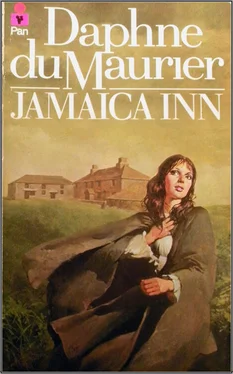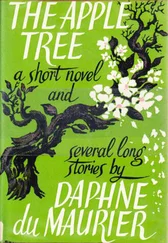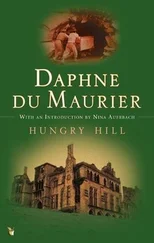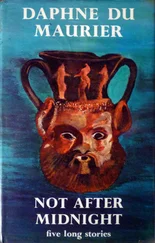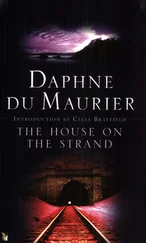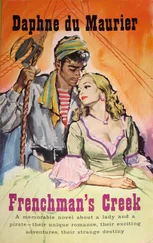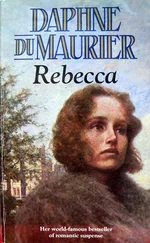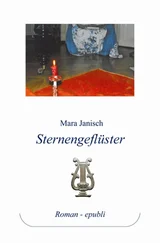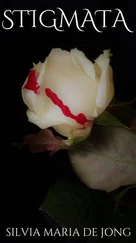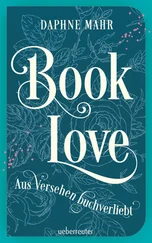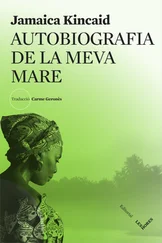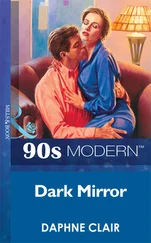They would be born of strange stock who slept with this earth as a pillow, beneath this black sky. They would have something of the devil left in them still. On wound the road across the dark and silent land, with never a light to waver for an instant as a message of hope to the traveller within the coach. Perhaps there was no habitation in all the long one-and-twenty miles that stretched between the two towns of Bodmin and Launceston; perhaps there was not even a poor shepherd's hut on the desolate highway: nothing but the one grim landmark that was Jamaica Inn.
Mary lost count of time and space; the miles might have been a hundred and the hour midnight, for all she knew. She began to cling to the safety of the coach; at least it had some remnant of familiarity. She had known it since the early morning, and that was long ago. However great a nightmare was this eternal drive, there were at least the four close walls to protect her, the shabby leaking roof, and, within calling distance, the comfortable presence of the driver. At last it seemed to her that he was driving his horses to an even greater speed; she heard him shout to them, the cry of his voice blown past her window on the wind.
She lifted the sash and looked out. She was met with a blast of wind and rain that blinded her for the moment, and then, shaking clear her hair and pushing it from her eyes, she saw that the coach was topping the breast of a hill at a furious gallop, while on either side of the road was rough moorland, looming ink black in the mist and rain.
Ahead of her, on the crest, and to the left, was some sort of a building, standing back from the road. She could see tall chimneys, murky dim in the darkness. There was no other house, no other cottage. If this was Jamaica, it stood alone in glory, foursquare to the winds. Mary gathered her cloak around her and fastened the clasp. The horses had been pulled to a standstill and stood sweating under the rain, the steam coming from them in a cloud.
The driver climbed down from his seat, pulling her box down with him. He seemed hurried, and he kept glancing over his shoulder towards the house.
"Here you are," he said; "across the yard there yonder. If you hammer on the door they'll let you in. I must be getting on or I'll not reach Launceston tonight." In a moment he was up on his seat again and picking up the reins. He shouted at his horses, whipping them in a fever of anxiety. The coach rumbled and shook, and in a moment it was away and down the road, disappearing as though it had never been, lost and swallowed up in the darkness.
Mary stood alone, with the trunk at her feet. She heard a sound of bolts being drawn in the dark house behind her, and the door was flung open. A great figure strode into the yard, swinging a lantern from side to side.
"Who is it?" came the shout. "What do you want here?"
Mary stepped forward and peered up into the man's face.
The light shone in her eyes, and she could see nothing. He swung the lantern to and fro before her, and suddenly he laughed and took hold of her arm, pulling her roughly inside the porch.
"Oh, it's you, is it?" he said. "So you've come to us after all? I'm your uncle, Joss Merlyn, and I bid you welcome to Jamaica Inn." He drew her into the shelter of the house, laughing again, and shut the door, and stood the lantern upon a table in the passage. And they looked upon each other face to face.
He was a great husk of a man, nearly seven feet high, with a creased black brow and a skin the colour of a gypsy. His thick dark hair fell over his eyes in a fringe and hung about his ears. He looked as if he had the strength of a horse, with immense powerful shoulders, long arms that reached almost to his knees, and large fists like hams. His frame was so big that in a sense his head was dwarfed and sunk between his shoulders, giving that half-stooping impression of a giant gorilla, with his black eyebrows and his mat of hair. But for all his long limbs and mighty frame there was nothing of the ape about his features, for his nose was hooked, curving to a mouth that might have been perfect once but was now sunken and fallen, and there was still something fine about his great dark eyes, in spite of the lines and pouches and the red blood flecks.
The best things left to him were his teeth, which were all good still, and very white, so that when he smiled they showed up clearly against the tan of his face, giving him the lean and hungry appearance of a wolf. And, though there should be a world of difference between the smile of a man and the bared fangs of a wolf, with Joss Merlyn they were one and the same.
"So you are Mary Yellan," he said at length, towering above her, his head bent to observe her more closely, "and you've come all this way to look after your uncle Joss. I call it very handsome of you."
He laughed again, mocking her, his laugh bellowing through the house, acting like a lash on the strung nerves of Mary.
"Where is my Aunt Patience?" she asked, glancing around her in the dimly lit passage, cheerless with its cold stone flags and narrow rickety staircase. "Is she not expecting me, then?"
" 'Where's my Aunt Patience?'" mimicked the man. "Where's my dear auntie to kiss and daddle me, and make much of me? Can't you wait an instant without running to her? Haven't you a kiss for your uncle Joss?"
Mary drew back. The thought of kissing him revolted her. He was either mad or drunk, anyway. Probably both. She did not want to anger him, though; she was too frightened for that.
He saw the question pass through her mind, and he laughed again.
"Oh, no," he said, "I'm not going to touch you; you're safe as a church with me. I never did like dark women, my dear, and I've better things to do than to play cat's cradle with me own niece."
He jeered down at her contemptuously, treating her like a fool, tired of his joke. Then he lifted his head to the stairs.
"Patience," he roared, "what in hell are you doing? Here's the girl arrived, whimpering for you. She's sick of the sight of me already."
There was a little flutter at the head of the stairs, and a footsteps dragged. Then the flicker of a candle, and an exclamation. Down the narrow stairs came a woman, shielding the light from her eyes. She wore a dingy mobcap on her thin grey hair, which hung in elflocks to her shoulders. She had turned the edges of her hair in a vain attempt to recapture ringlets, but the curl had gone. Her face had fallen away, and the skin was stretched tight across her cheekbones. Her eyes were large and staring, as though they asked perpetually a question, and she had a little nervous trick of working her mouth, now pursing the lips and now relaxing them. She wore a faded striped petticoat that had once been cherry coloured and was now a washed-out pink, and over her shoulders was flung a much-mended shawl. She had obviously just strung a new ribbon in her cap in some small attempt to brighten her dress, and it struck a false, incongruous note. It was bright scarlet and showed up in horrible contrast to the pallour of her face. Mary stared at her dumbly, stricken with sorrow. Was this poor tattered creature the bewitching Aunt Patience of her dreams, dressed now like a slattern, and twenty years her age?
The little woman came down the stairs and into the hall; she took Mary's hands in hers and peered into her face. "Have you really come?" she whispered. "It is my niece Mary Yellan, isn't it? My dead sister's child?"
Mary nodded, thanking God that her mother could not see her now. "Dear Aunt Patience," she said gently, "I'm glad to see you again. It's so many long years since you came to us at Helford."
The woman kept pawing her with her hands, stroking her clothes, feeling her, and suddenly she clung to her, burying her head against her shoulder, and she began to cry, loudly and fearfully, drawing her breath in gasps.
Читать дальше
